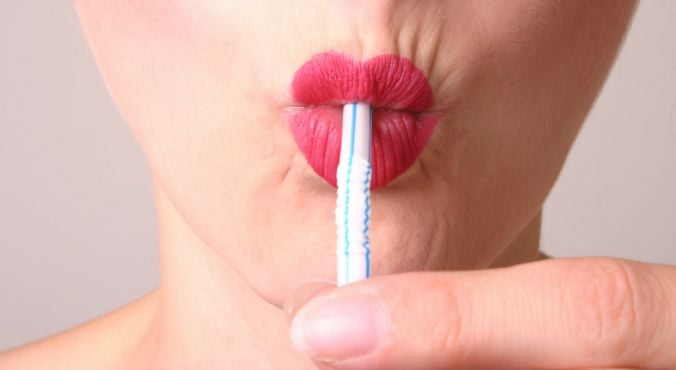
Image: iStock.
Soda water is like the ultimate cheat beverage.
It has all the fun and fizz of soft drink without the heart-stopping amount of sugar; and feels just a little bit fancier than still water — especially when you drop in a wedge of lime — while still meeting all your vital refreshment and hydration needs.
RELATED: The amount of water you should actually consume every day? It’s not 8 glasses.
So there are a lot of good reasons to reach for the sparkly stuff — but does it get along with your teeth?
According to dentist Dr Alex Huszti, of Belle Dental in Newcastle, says the carbonation process — where carbon dioxide is passed through water either naturally or artificially — does contribute a level of acidity to sparkling water.
"When you pass carbon dioxide through water you get bubbles in it... but you also produce some acids. One of these is carbonic acid, and it's a mild acid, so that affects the pH of the water it ends up being slightly acidic," Dr Huszti explains.
"It's certainly not to the degree that you get with carbonated drinks like Coke, which are much more acidic because of the flavourings and the sugar. Even the ones that are sugar-free are quite acidic... So to some degree, [soda water] is a better choice than Coke."
RELATED: Why your bedside glass of water tastes "funny" come morning.
Professor David Manton of the University of Melbourne's Melbourne Dental School agrees, saying plain carbonated water is "generally safe for teeth as long as it is drunk in moderation".





























































































